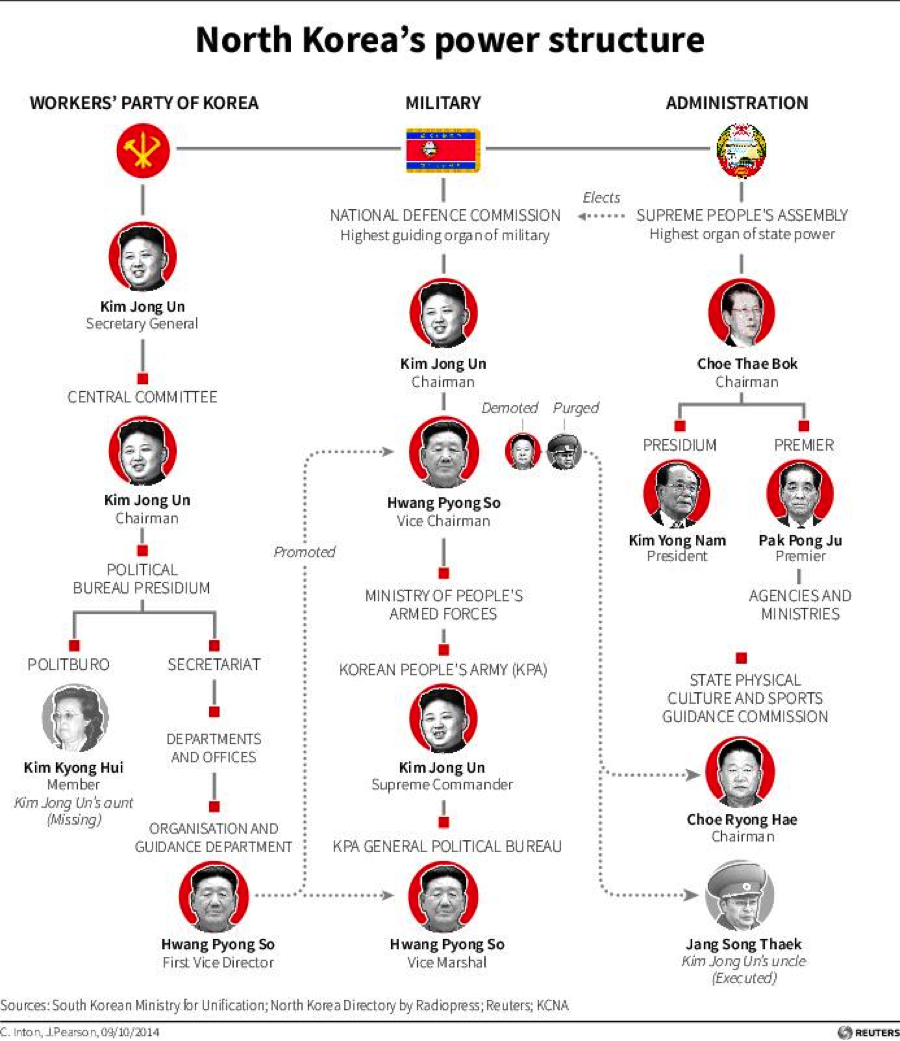North Korea released Jeffrey Fowle yesterday, one of three American hostages held in its jails. He said he was arrested for leaving a Bible in his hotel room, but the pretext doesn’t really matter. North Korea takes prisoners as state policy, a way to fine-tune its hostility level with the United States and indulge its paranoia just a bit. And like the rest of its leader’s manias, there are certainly more hostage crises to come.
North Korea is usually treated by the media as something of an historical accident, like America’s ownership of Guam or the statehood of the Vatican. Its behavior also seems retro, a hostage–taking relic of power politics unsuited for the modern world. Other states grew up during the First War and Second World Wars, and then the Cold War, and then post-9/11 period. They sub-divided and shed dictators and terror and swapped ideology for cash, and most of the worst moved on to something else.
Related: North Korea Unexpectedly Frees American Jeffrey Fowle
North Korea never moved on. It was born of the military confluence of the Second World War and the Yalta Conference where FDR, still uncertain about his nuclear bomb, asked Stalin to help him against the Japanese. Stalin was more than happy to oblige, and in return, he got Poland. Korea and Poland are actually quite similar, both hard-used by history and trapped between large, hungry, antagonistic neighbors with no real borders.
As a result, for long stretches of Korean political history, there has been not one state but many, often clients of China and its rivals. There was the Proto-Three Kingdoms period, during the Iron Age; the Three Kingdoms, for five hundred years until 668; and then the Later Three Kingdoms, until 936. Korea experienced bouts of unification until the late 1500’s, until pre-Tokugawa Japan invaded in 1592, en route to China At the beginning of the 20th century, it again fell under Japanese domination after Tokyo’s wars against China and then Russia. The Japanese occupied the peninsula for four decades and are not remembered fondly.

America is a relative latecomer to the Korean peninsula. After the Second World War, Korea was divided into Soviet and American zones. Reunification talks collapsed because the powers occupying Korea had conflicting interests, which seemed unnatural to everyone except the Koreans.
The U.S. nearly abdicated its role in 1950 when Truman’s Secretary of State Dean Acheson accidentally (or not) excluded Korea from the U.S. defense perimeter in Asia. Stalin and Kim – the elder Kim – saw the green light, and invaded the South in June 1950.
Related: North Korea Envoy Says Door Is Open on Nuclear Issues
The war ended with U.S. troops back in Korea, facing off against the Chinese, very nearly where the two sides had started. “Ended” is perhaps the wrong term for a conflict that still hangs fire; the North and South are still legally very much at war, each with different backers, each dependent – per Korean history – on someone else.
Korea has only been unified when its neighbors are weak, and China’s growing strength means it can support Kim’s ‘North’ for the foreseeable future. That cuts both ways, though: the Chinese also can’t abandon him, lest one of their other rivals unify and ally the Koreas against them. The Americans would be worse than the Kims and the Japanese worse than the Americans—and a whole Korea might ally with either.
The Chinese do not like Kim; they do not particularly like his state; but they will ensure that there will always be, in one form or another, a Kim in the North. Because the pattern of East Asian power politics for the past four thousand years says that if China does not fill the Korean vacuum somebody else will.
Related: “No Problem at All” for North Korea Leader Kim’s Health
Kim – Kim the Younger, Kim the despot, Kim of the belly but not the hair – is thus a millionaire’s son distilled large. He’s a child without limits and accountability, living a Scarface life atop Caesar’s Palace in a prison. His behavior – and that of all the Kims, as the amplitude of their insanity grows larger – is due not to being a dictator but to being an irreplaceable one. They are a product of their country’s singularly unfortunate geography, and their status as a necessary client state of China.
At some point, almost certainly, Kim Jong Un will die. It’s not wholly undisputed, of course: the North Koreans’ political theology allows only that the father and grandfather Kim has reduced their public appearances. But in reality, as man born of flesh, all Kims must die.
What will survive is Kimism: the stunted, kaleidoscope Carnivale of North Korea, for which totalitarianism is insufficiently total as a word. There will thus be more hostages, more Fowles and Baes and Millers. There will be more Dennis Rodman trips, and outlandish Kim haircuts. There will be more because there can’t not be more--not with the way the Korean game has always been played.
Top Reads from The Fiscal Times:





